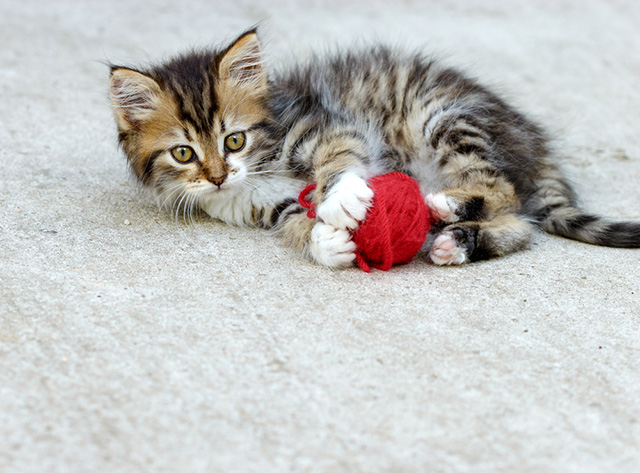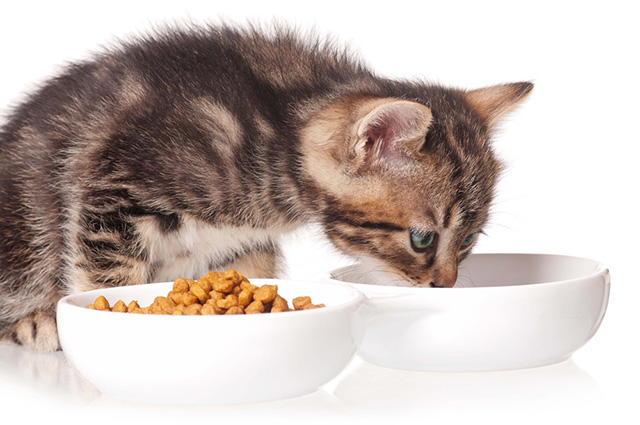Planning for the arrival of a new kitten
Make sure you’re ready for the arrival of your new kitten by ‘pet proofing’ your home. Have fun choosing a carrier, bed, blanket, litter tray, toys and other supplies before your new kitten enters your house for the first time.

Kitten nutrition and healthcare
You can make a major contribution to your cat’s longevity, happiness and quality of life by providing him/her with good nutrition, loving attention in a safe, clean environment and regular checkups at your veterinary practice.

How to introduce your new kitten to the home
Ensure your new kitten is familiar with the essentials, by introducing them to the food and water bowl and the litter tray. The litter tray and the food/water bowls should not be kept in the same place and ideally there should be 2 litter trays per cat in one house.
With sensitive handling and friendly contact for at least an hour a day, your new kitten should soon be very comfortable with you and the new home. If there are young children in the home, make sure that they are taught that a kitten is not a toy but a living creature who must be treated with gentleness and respect.
Also provide your kitten with lots of opportunities for interesting, challenging play that will satisfy his/her natural instincts. Toys that they can pretend to ‘hunt’ and capture and special posts that can be scratched (instead of your carpets and furniture) will help make your kitten a joy to live with. A kitten should not go outside until they are fully vaccinated as they are susceptible to catching diseases.

Your kitten’s first health check
Your new kitten should visit a veterinary surgeon as soon as possible.
The first visit will probably include:
- A thorough physical examination to determine his/her state of health.
- Check for parasites (fleas, ticks, lice, ear mites, worms).
- Initial vaccination and/or a discussion of the types of vaccinations your kitten needs and when they should be scheduled.
- Discussion about neutering and the best time to do this.
- A discussion about microchipping your kitten before it goes outside
This first health check will give your veterinary surgeon the information he/she needs to advise you on your kitten’s immediate diet and care. Plus, it will create a “knowledge base” from which, on subsequent checkups throughout your cat’s life, he/she can better evaluate, monitor and manage your pet’s health.
When should you neuter your kitten?
Many veterinary surgeons believe that spaying or neutering not only helps solve the serious problem of a burgeoning population of unwanted cats but also makes for friendlier, easier-to-live-with pets. Spayed female cats are more relaxed, playful and affectionate, while castrated males are calmer and less likely to ‘spray’ or urine-mark their territory, wander away from their home or fight. Plus, sterilisation has health benefits – it minimizes the risk of mammary cancer in females and reduces the incidence of prostate problems in males.
Cat spaying
Spaying removes the uterus and ovaries of a female cat, usually prior to the age of six months and before they come into heat for the first time. A major surgical procedure, it is performed under general anaesthesia. Complications are rare and recovery is normally complete within ten days. In general kittens recover very quickly after this procedure and are up and about in no time.
Cat castration
Castration, also carried out under general anaesthesia, removes the testicles of a male cat. The small wounds that result usually heal in about a week. Less complicated than spaying, it is often performed when the cat is less than six months old. The earlier the procedure the less likely that secondary male characteristics such as spraying and fighting become learnt and therefore difficult or impossible to undo.
